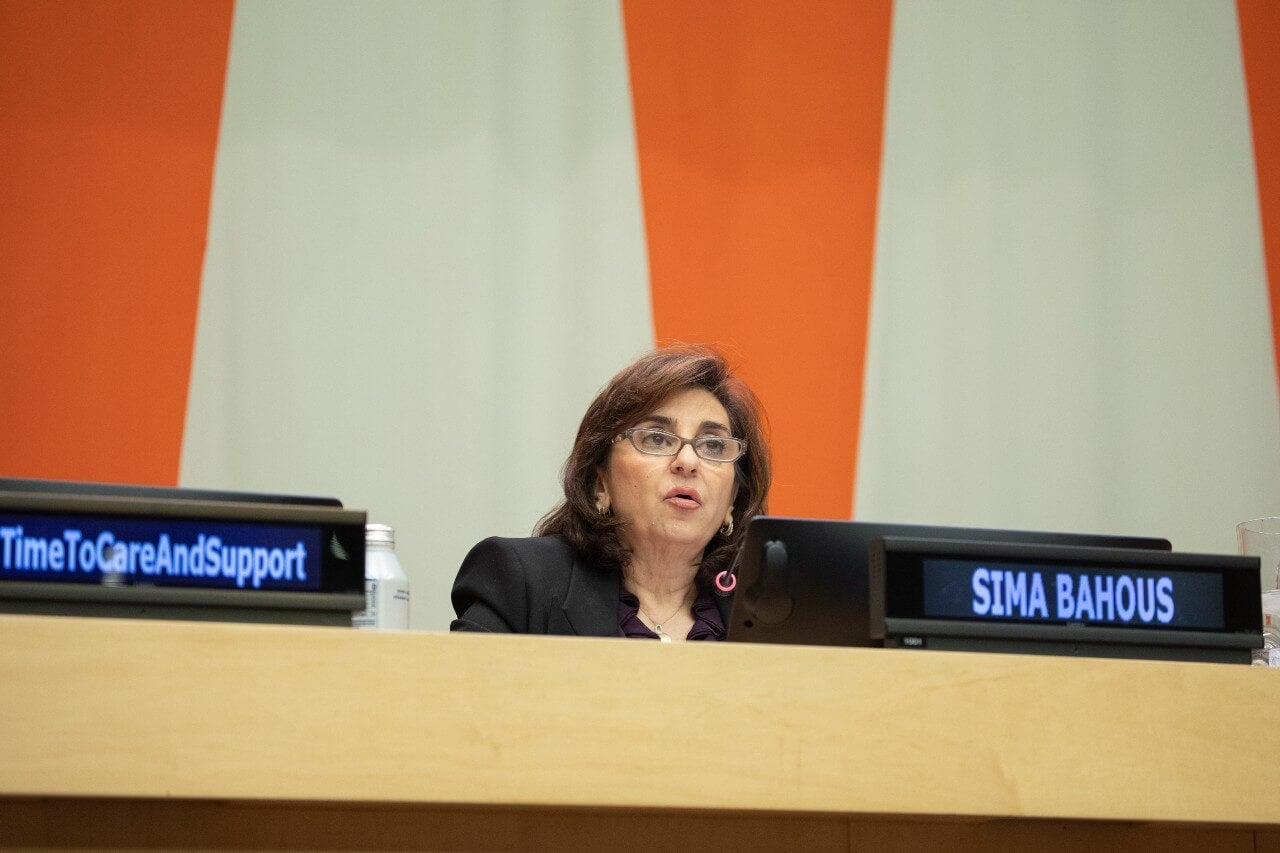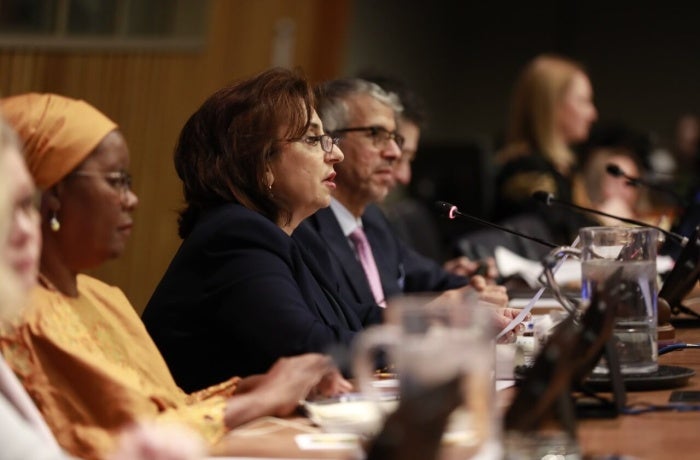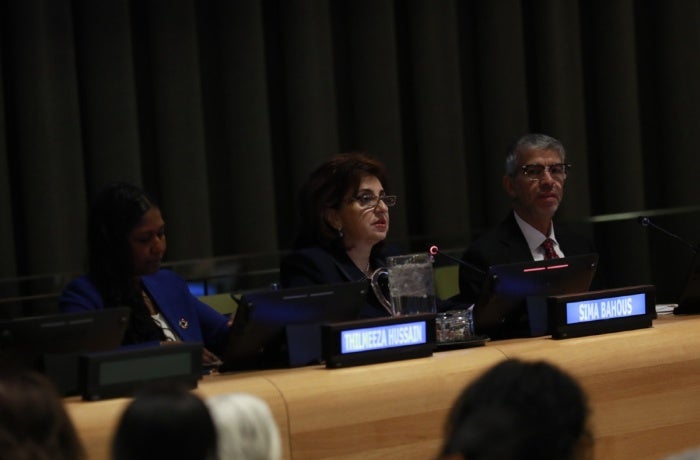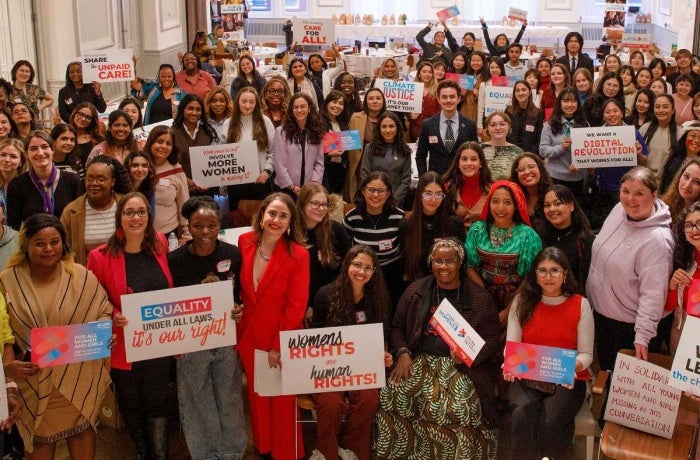Speech: Care is the thread that weaves across our societies and underpins all aspects of our daily lives and wellbeing
Closing remarks delivered by UN Under-Secretary-General and UN Women Executive Director Sima Bahous at the inaugural commemoration of the International Day of Care and Support, UN Headquarters, 31 October 2023.
[As delivered.]
It is an honour to join you today on this inaugural United Nations commemoration of the International Day of Care and Support. This is indeed a historic day, and we should all be proud to have done our part in recognizing it.

I would like to thank the Governments of Spain and Chile again for co-sponsoring this event. Their commitment to addressing care as a gender equality, human rights, and sustainable development issue has made today’s observance possible. This day has also been made possible with steadfast support from other countries as well—you have seen them throughout the day: Argentina, Colombia, Germany, Mexico, the Philippines, Tunisia, and the United Kingdom.
My deep appreciation also to my UN colleagues, ILO [International Labour Organization] and OHCHR [UN Office of the High Commissioner for Human Rights], with whom UN Women has worked alongside to make this commemoration a reality.
Excellencies, today we have heard from a truly diverse line-up of speakers who have brought critical and valuable perspectives. Across all of these, we heard one core idea reverberate: care is the thread that weaves across our societies and underpins all aspects of our daily lives and wellbeing. There is not a person in this room, I don’t think, who does not and will not need or provide some form of care and support in their lifetime. Most of us care for many people: our children, parents, spouses, even neighbours and community members.
Care sustains our wellbeing and underpins all other forms of paid work. In fact, knowing that the care responsibilities are taken care of allows people to go out into gainful employment. Yet, to this day, care and support work, both unpaid and paid, is undervalued and highly gendered, as you have also discussed in your different panels.
For far too long we have taken care work, that keeps our societies running, for granted.
Excellencies, at the current rate of progress, the next generation of women will still spend on average 2.3 more hours per day on unpaid care and domestic work than men.
Addressing the undervaluing and gendered division of care work is a precondition for SDG 5 [Sustainable Development Goal 5] and women’s social, economic, and political rights, with the benefits cutting across multiple SDGs to support just, prosperous, and sustainable societies and economies that work for everyone.
One estimate indicates that closing existing care gaps and expanding care services with decent care work could create almost 300 million jobs by 2035, reducing gender inequalities in employment and yielding significant economic and social returns. Studies also show that 70 per cent to 90 per cent of the jobs created by investing in care infrastructure will be taken up by women. So, the evidence is clear: investing in care work is investing in our common future; it is also investing in the SDGs, in all the SDGs.
From around the globe, excellencies, we have seen positive steps taken by governments who are adopting care policies and recognizing the rights of care workers, to private sector companies that are providing care services, to trade unions that are representing millions of care workers. And to all of you, here today, you have committed to investing in care and support.
However, I am sure you all agree with me that we still need to scale up our efforts to secure financing and partnerships to ensure truly gender-transformative and human rights–based care systems globally.
Today is a signal of our collective efforts in building a new social contract that puts care and support at its centre, recognizing its pivotal role in fostering a more equitable, sustainable, and inclusive society.
While today we place a special focus on care and support, we will use every day as an opportunity to push for a world where care is valued, shared, and respected by all, laying the foundation for a brighter and more equal future on the path of the SDGs and to 2030. The time for care and support is now.
I thank you.









